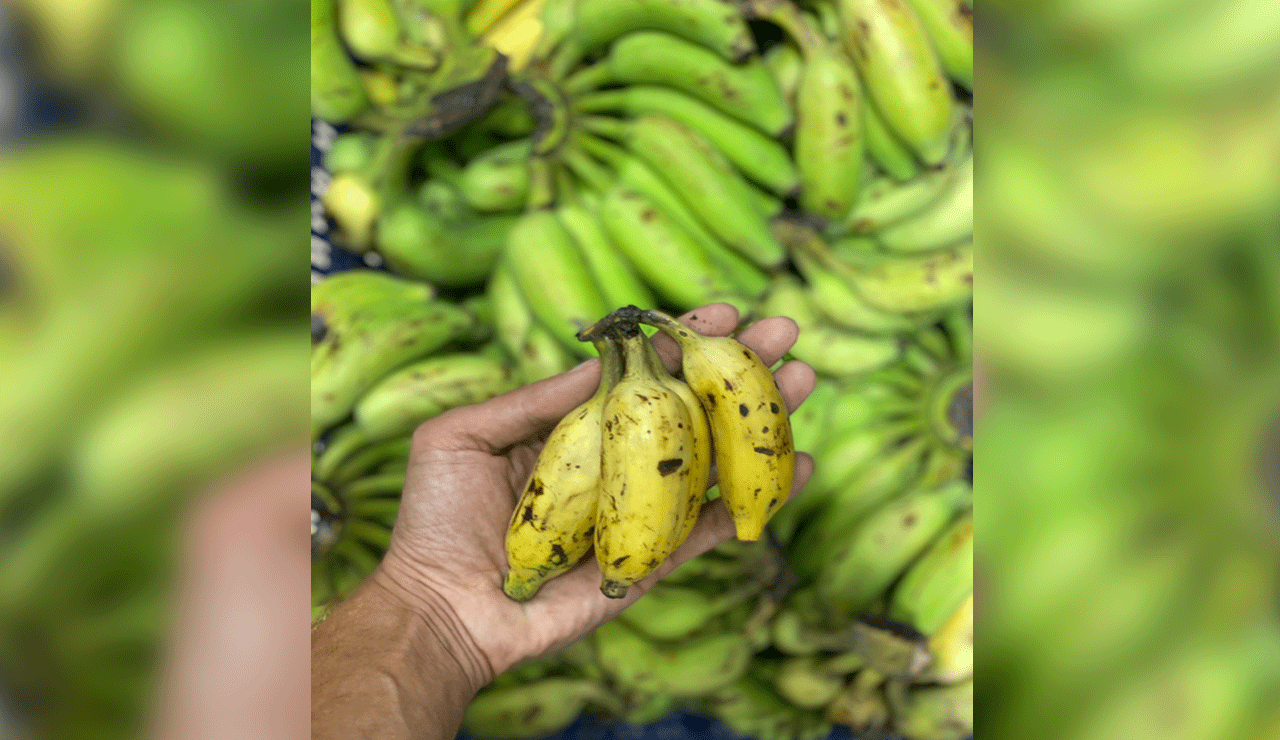60 pc of banana growing areas hit by climate change globally; calls for more support to farmers
A new report released by Christian Aid warns that 60 per cent of the world’s best banana-growing regions are under serious threat from rising temperatures, extreme weather, and climate-induced pests.

New Delhi: A new report released by Christian Aid warns that 60 per cent of the world’s best banana-growing regions are under serious threat from rising temperatures, extreme weather, and climate-induced pests.
Table of Contents
The report, titled “Going Bananas: How Climate Change Threatens the World’s Favourite Fruit”, emphasizes the urgent need for climate action and increased support for banana farmers worldwide.
First-Hand Accounts: Farmers Already Feeling the Impact
Banana grower Aurelia Pop Xo from Guatemala shared the devastating reality faced by many farmers:
“Climate change has been killing our crops. This means there is no income because we cannot sell anything. My plantation has been dying. What has been happening is death.”
Aurelia added that what was once considered a distant threat is now a grim present:
“It has come earlier… because we are not taking care of our planet, and this is very worrying for our kids and grandkids.”
Latin America and the Caribbean at High Risk
Currently, Latin America and the Caribbean account for 80 per cent of global banana exports, supplying supermarkets across the globe. However, the report warns that 60 per cent of the most suitable growing areas in the region could be lost by 2080.
India’s Banana Industry: High Output, High Stakes
India is one of the largest banana producers in the world, contributing 29.7 million tonnes annually from 0.88 million hectares of cultivated area. Although India holds only 15.5 per cent of the global area, it contributes a significant 25.58 per cent to total production, according to Indian agricultural experts.
Bananas: A Staple for Millions Worldwide
Bananas are not just a fruit—they are a dietary staple for over 400 million people, providing 15 to 27 per cent of daily calorie intake. Globally, bananas are the fourth most important food crop, following wheat, rice, and maize.
Rising Temperatures, Storms, and Fungal Threats
Bananas thrive in temperatures between 15°C and 35°C but are extremely vulnerable to water shortages and extreme storms, which damage leaves and hinder photosynthesis.
One of the biggest emerging threats is Fusarium Tropical Race 4, a fungal infection that kills entire banana plantations. The disease has already been detected in key export countries like Colombia and Peru.
Christian Aid and Experts Call for Urgent Action
To protect the future of banana cultivation, Christian Aid urges wealthier, polluting nations to urgently cut carbon emissions and contribute more to international climate finance for frontline farming communities.
Holly Woodward-Davey, Project Coordinator at Banana Link, explained:
“Banana growers face growing uncertainties. Heat, water scarcity, and disease make conditions more dangerous and unpredictable. Without systemic change, farms could be wiped out by fungal outbreaks.”
What Consumers Can Do: Choose Fairtrade and Organic
Consumers are encouraged to support banana farmers by buying Fairtrade-certified bananas, which ensure better compensation for growers. Purchasing organic bananas also helps reduce the environmental impact caused by chemical fertilisers, which contribute to greenhouse gas emissions and ecosystem degradation.
